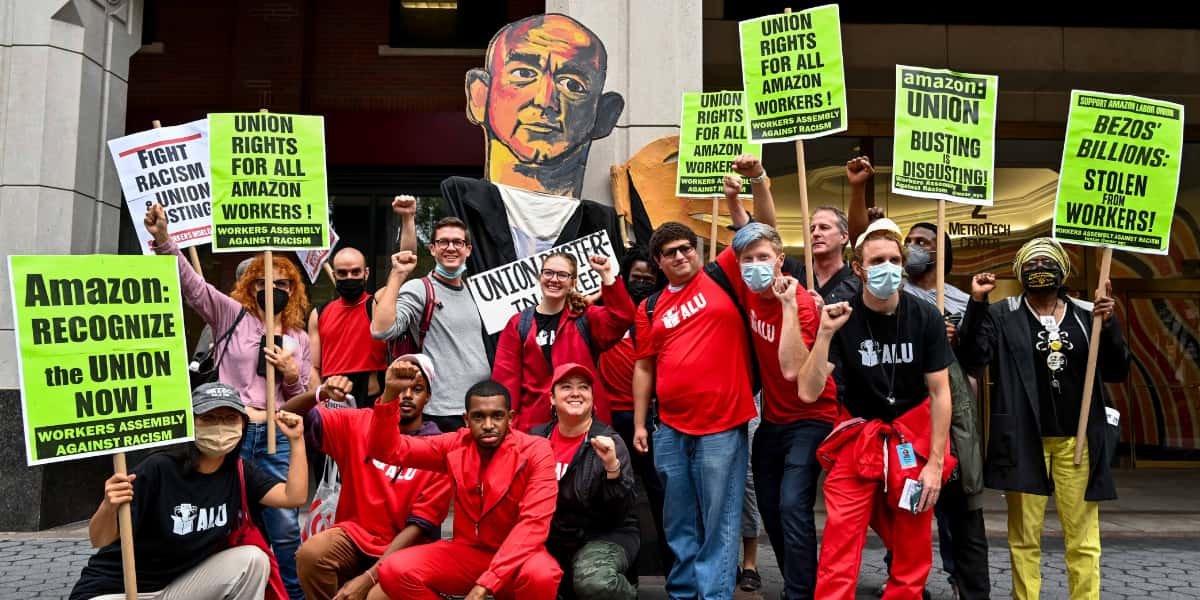With the increasing efficiency of modern workplaces. Worrying trends such as feeling neglected. Being overworked or overlooked has become somewhat common for employees. This is where unions step in, as they can prove to be an important asset in this regard. Actively fight for the Union worker’s rights. But what is a union exactly and why is it important for the rights you have at a workplace?
What Is a Union?
A union is, as its name implies. A legally recognized public and private organization made up of individuals. Employees who protect their rights also improve the workplace conditions in which they operate. As well as seek for more favorable salaries and benefits. Unions help employees have a collective voice through collective bargaining. Enable them to have a say in issues that impact their source of living.
History of Labor Unions
The union is as old as the Industrial Revolution. It was the time when workers began looking for ways to avoid extreme working conditions and poor payment. In due course, their nature changed, finding a new place in the lives of most of the economies around the globe.
Why Unions Matter for Workers’ Rights
Unions are very important in protecting the rights of employees. For example, nonunion employees may have no voice at all when the company makes decisions. Here are some of the points about why and how unions are important:
- Wage and Benefit Fairness
Most workplace benefits and salary packages are higher for organized workers. Compared to non-organized workers. This is because workers are represented in negotiations. Thus their work is Receiving payments.
- Assurance to Work
Unions endow workers with assurances that in case of layoffs. Or factors leading them are in the organization. There are defined policies to be adhered to. This prevents the threat of firing a person without regard. For them and also makes rationality applicable to all.
- Work Environment Safety
Safeguarding the interests of employees at work is one of the most popular aims of the labor unions. They push for the introduction of regulations and policies that prohibit employers. From putting employees in hazardous conditions. Compelling compliance with laws about employee health and safety.
- Provision of Legal Support
If workers have legal issues with their employees. Unions will be able to provide legal services. And help defend workers’ rights. This is very helpful in giving workers a cover against abuse and mistreatment.
- Freedom from Discrimination
Unions promote equal opportunities in the workplace. For example, it could be wage discrimination. Or even biases towards furry squirrels, in all aspects of work. Unionize and workers enjoy a focus on the restoration of equity.
How Unions benefit Employers
Although unions are devoted to defending the interests of employees. Employers also stand to gain from unions. The reason why a good union should be promoted is that it can enhance the organization’s performance. Decrease churn rate as well as enhance the constructive atmosphere in the organization.
- Improved Employee Retention
Employees tend to remain in unionized workplaces for a longer period. Since they feel more secure about their employment. This in turn helps employers reduce the amount of recruitment and training they do.
- Increased Productivity
There’s a saying that happy workers are productive workers. Employees who feel appreciated will consistently try and optimally perform in their roles. Which will be an advantage to the whole organization.
- Streamlined Communication
Unions act as a link between the employees and the management. Communication between the non-management staff. And the management is clear as there is a union for engagement to be sought after. Thereby minimizing the chance of miscommunication and next conflicts at the workplace.
Challenges Facing Modern Unions
Despite the many advantages that they have, unions are also faced with a lot of challenges. Barriers to strong unionism still exist. From anti-union actions and policies to the different dynamics of industries.
- Decline in the Union Membership
The trend of lessened union membership occurred in recent decades in several industries. The phenomenon includes outsourcing and technological advancement. And the increase of gig economy workers. Who don’t fit in the conventional union membership groups.
- The Anti-Union sentiments are inadequately apprehended
Corporate culture reduces the workers’ rights and unionizing is said to increase the cost of labor. As a result, there has been an increase in the anti-union efforts and strategies seeking to dissuade workers from mobilizing.
- Legal Limitations
Some laws in specific areas are such that they wholly or partially restrict the possibilities of union establishment or the efficiency of operations. Such legislation may constrain workers’ organization opportunities and join the unions’ power in the work environment.
The Future of Unions
It is to this creed and purpose that the unions are just as set to evolve with changing trends within industries. The future of the unions will most likely be more about adjustment to working arrangements. Which includes other risks such as the task economy that does not provide worker benefits.
- Unionizing Gig Workers
In these times of gig work, there is a need for unions to look at how to act on behalf of its members who are independent entrepreneurs or freelancers. This will call for new forms of collective action and legal action.
- Whistleblowing: broad scope and high risk
These days there are even new tools for union campaigning. Internet resources and social networks are being used for uniting the working class and changing the order of those industries, which used to be hardly unionized.
The Importance of Collective Bargaining
One of the most important activities of a union is bargaining. Also referred to as collective bargaining. As a result of this procedure, employees can make demands and reach agreements with their employers as a collective. Thereby giving them more bargaining power about their salaries. Other terms and conditions, than they would as individual employees.
- What Is Collective Bargaining?
Collective bargaining is a continuing process through which particular bargaining relationships are established. Trade unions bargain with employers on behalf of employees, which guarantees that appropriate employee issues are internalized systematically.
- The Benefits of Collective Bargaining
Workers use the mechanism of collective bargaining to get better compensation, allowances, working facilities and terms. Also, it provides a structure for the disputes resolution process between employees and employers.
- The Role of Union Representatives
Union representatives are an important aspect of collective bargaining in that they represent the interest of the workers to the employers and vice versa. Workers are represented in what takes place during the negotiations and it is their concerns that are represented.
Union Membership: How to Get Involved
The union can offer some advantages as is often the position, however, the majority of the employee population is apprehensive about the entry-getting stage. As a first step in overcoming this lack of consensus, here is a guide to union activity within your workplace.
- Find Out If Your Workplace Has a Union
The first course of action is to find out if there are any unions in your workplace. If such is the case, contact a union administrator to know the details involved in becoming a member.
- Start a Union If One Doesn’t Exist
If such a scenario does not hold in your workplace, you and your workmates can form a union. This entails receiving authorization from a specified majority of the employees of the workplace. Question and undertake the necessary legal procedures in forming a union.
- Take part in Union Activities
Once you are already in a union and have completed the legal obligations. The next significant step is to take a proactive role in the activities of the union. Go to union gatherings, and take part in votes on critical issues. And assist in the national bargaining processes.
Conclusion
Unions are another essential mechanism that is present in the working community. Since it serves to offer the workers protection, safety, and even a voice. Unions work towards housing all responsible employers within one framework. Raising concerns about fair pay, working conditions, and treatment.
All these aspects clarified that the workforce is changing, so. And unions should be open to changes, which would help them ensure workers. Representation in all areas of employment in the way that is most effective in the future. The Will of the unions to survive depends on their readiness to change and fight for the workers.
Read More: Reasons Why Investors Won’t Invest in Your Business
FAQs
1. What is the main aim of a union?
The main aim of a union is to defend workers, reach a better payment agreement, and make certain of sound and decent working environments.
2. Any worker can be a member of the union, is it not?
Yes, workers can join a union if the company there is a union. Otherwise, they can help to establish one with their co-workers.
3. Why is collective bargaining advantageous to workers?
Collective bargaining addresses regular inconsistencies in pay scales by giving the workers the power to come together as one unit so that its members minimize or avoid exploitation of different forms.
4. Are unions for only few professions?
No, unions are there for many professions, which may include nurses, teachers and members of factories among other sectors, industries may differ rates of prevalence and location.
5. The union has to some degree changed with the economy that we find ourselves in now, the gig economy, how do you think the union is doing this?
The union is trying to find ways to support gig workers by working for their proper rights, better compensation structures and the right to bargain collectively in new types of employment situations.








I’m often to blogging and i really appreciate your content. The article has actually peaks my interest. I’m going to bookmark your web site and maintain checking for brand spanking new information.